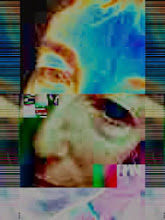
Here is a very brief description of one of the projects I'm working on. It considers what available stock of meanings are brought to bear by advertising as a form of historically situated communication. Advertising is a kind of double-communication since it sends messages per se and it supports other messages publication. One key assumption is that the separation between content & audience in mass communication research is false or at least misleading; a tight structural relationship exists between the two.
The nature of advertising: raw, cooked, incorporated
A growing consensus suggests that a global ecological crisis impacts every facet of human society. The recent oil rig explosion and consequent spill in the Gulf of Mexico sent crude oil gushing into the waters, killing 12 oil rig workers as well as marine wildlife, putting fishermen out of work, devastating the tourism industry and other negative occurrences. Although the disaster was watched with horror, the US remained divided over the wisdom of further drilling and indeed whether there is an ecological crisis or not.
Mass media, as has been richly established, contributes to the formation of public opinion through its agenda setting, and other functions. But most commonly advertising’s ability to persuade or set an agenda has been relegated to its primary intention, i.e. to promote products and services.
This research assumes that advertising has an educational function related to the formation of public opinion that exists separately from its promotional function. It explores how advertising educates one section of the population, women between their teen years to over 40, about the role of nature in their social and cultural milieu. The research focuses on magazine advertising, treating ads as sections in a textbook, the textbook being the magazine which performs a highly complex set of educational practices and the ads which both compliment the editorial content and add to it.
Please return to the blog for updates on this project.

